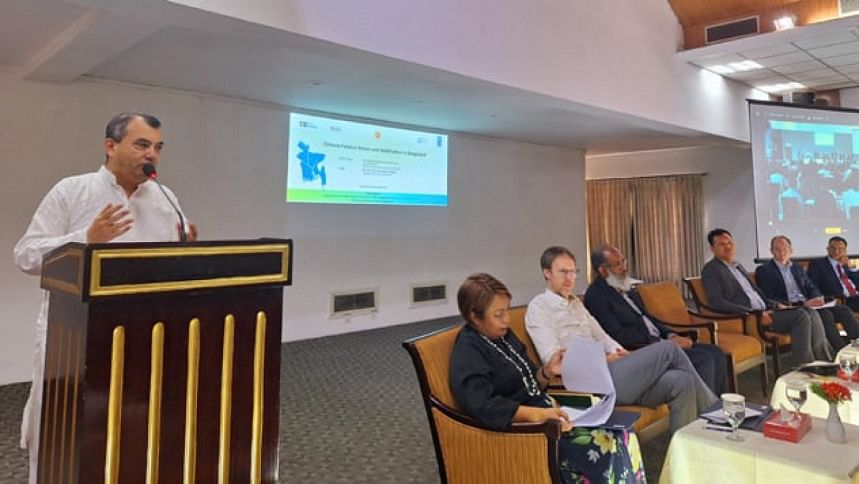Bangladesh needs $876b to implement climate action plans: Saber

Environment, Forest and Climate Change Minister Saber Hossain Chowdhury today said Bangladesh needs US$ 876 billion to implement its ambitious climate action plans and that is why international cooperation is crucial in this regard.
He said the National Adaptation Plan (NAP) of the country estimates an investment of US$ 230 billion for adaptation till 2050.
The environment minister said this while speaking at an inaugural function of a three-day workshop organised by the Economic Relations Division (ERD) held in BRAC CDM, Savar.
Additionally, he said, implementation of the Nationally Determined Contributions (NDC) requires US$ 175 billion.
"The Mujib Climate Prosperity Plan (MCPP) and the Bangladesh Delta Plan 2100 estimate that US$ 471.72 billion will be required to implement the identified priority projects," he said.
"Partnership is fundamental. For coordination among the development partners, the government formed Bangladesh Climate Development Partnership," he said.
Saber Chowdhury said climate change is not just an environmental issue; it is an economic, social and developmental issue that affects every sector of the society.
"Mobilising climate finance is essential to support our transition to a low-carbon, climate-resilient economy. We must leverage private sector investments, international climate funds, and innovative financing mechanisms. We need to build robust institutional frameworks and enhance our technical capacities to effectively access, manage, and deploy climate finance," he said.
He said the developed countries have a moral and legal responsibility to support developing countries in their climate actions.
"We call upon our international partners to honor their commitments and provide predictable, adequate, and accessible financial support. At the same time, we must also explore innovative sources of finance, such as green bonds, climate insurance and public-private partnerships. Let us work together to mobilise the necessary resources, implement transformative actions and build a better, safer and more sustainable world for future generations," he continued.
The event brought together key stakeholders from government agencies, international organisations, financial institutions and civil society to discuss strategies for enhancing climate finance and its effective utilisation in Bangladesh.
Experts highlighted the need for a multi-faceted approach that combines public and private sector efforts, as well as international cooperation, to effectively address climate finance gaps.

 For all latest news, follow The Daily Star's Google News channel.
For all latest news, follow The Daily Star's Google News channel. 



Comments